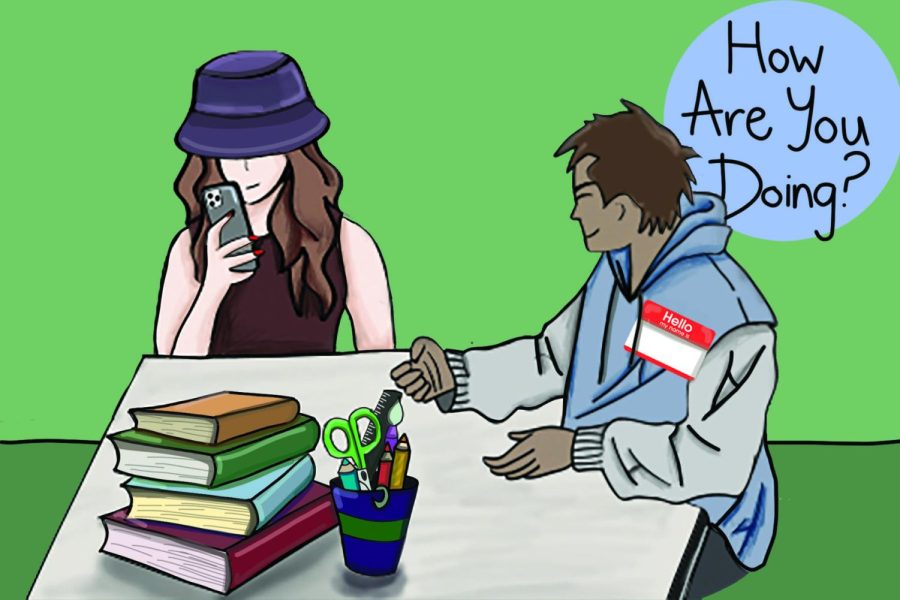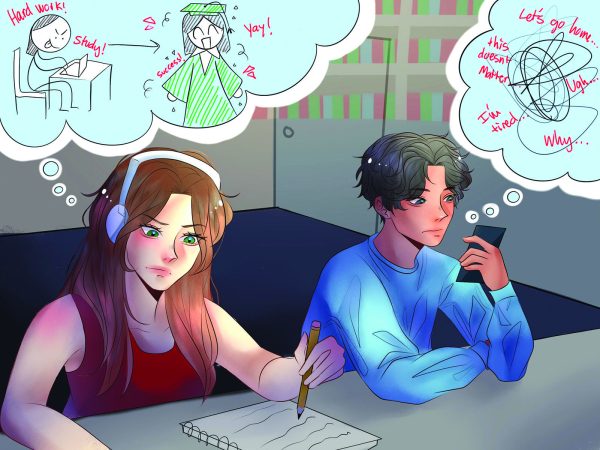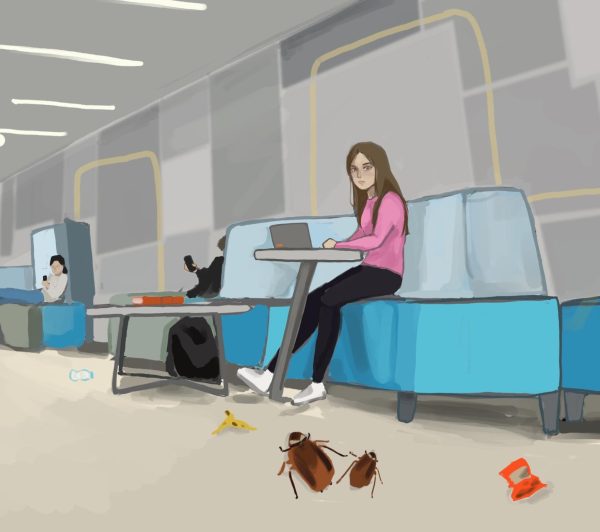Editorial: Burst out of social bubbles
As the bell rings and students walk into their classrooms, they are greeted by a silent room filled with classmates mindlessly scrolling on their phones, ignoring those around them. Some students use this short downtime with their eyes focused on a screen, or their fingers typing on a keyboard. Seeing others on their phones prevents students from initiating conversations with others. Students not only keep to themselves, but they also keep to their friend groups.
When given the choice to pick seats in class, students immediately gravitate towards their friends to stay within their comfort zones instead of meeting someone they do not know. During prom season, groups can be exclusive by not allowing people to join, and some even create “waitlists” for potential group members. Students are trapping themselves in their social bubbles.
These situations commonly foster restrictive social circles. Students confine themselves to solely be with people they already know, rather than expand the range of who they interact with. Many students do not take the time to realize they are doing this, which minimizes their chances of branching out to others. While sticking to the same community may seem beneficial to some, there are unintended consequences to these actions.
Even towards the end of the year, students do not know each other’s names. When sharing a Google Doc with group members in class, students will ask for each other’s ID numbers instead of their names. It is disrespectful to not learn the names of classmates. Failing to acknowledge each other actively prevents students from forming new relationships.
When students put in the effort to engage with their peers, they may end up feeling poorly about themselves if they do not receive the same attention back. The fact that students can sit next to someone for months and even work with them on group projects without knowing the student’s name shows how people have become absorbed in their own social bubbles. The ability to learn about others’ stories and experiences is lost when students stick to their social circles and choose not to venture out of them. If people paid better attention to their peers, it would become easier to form meaningful relationships.
Yes, checking a quick text may be a mindless break from hectic everyday life, but simply asking a table partner about weekend plans demonstrates an active effort of showing respect that just might create the foundation for a friendship.









